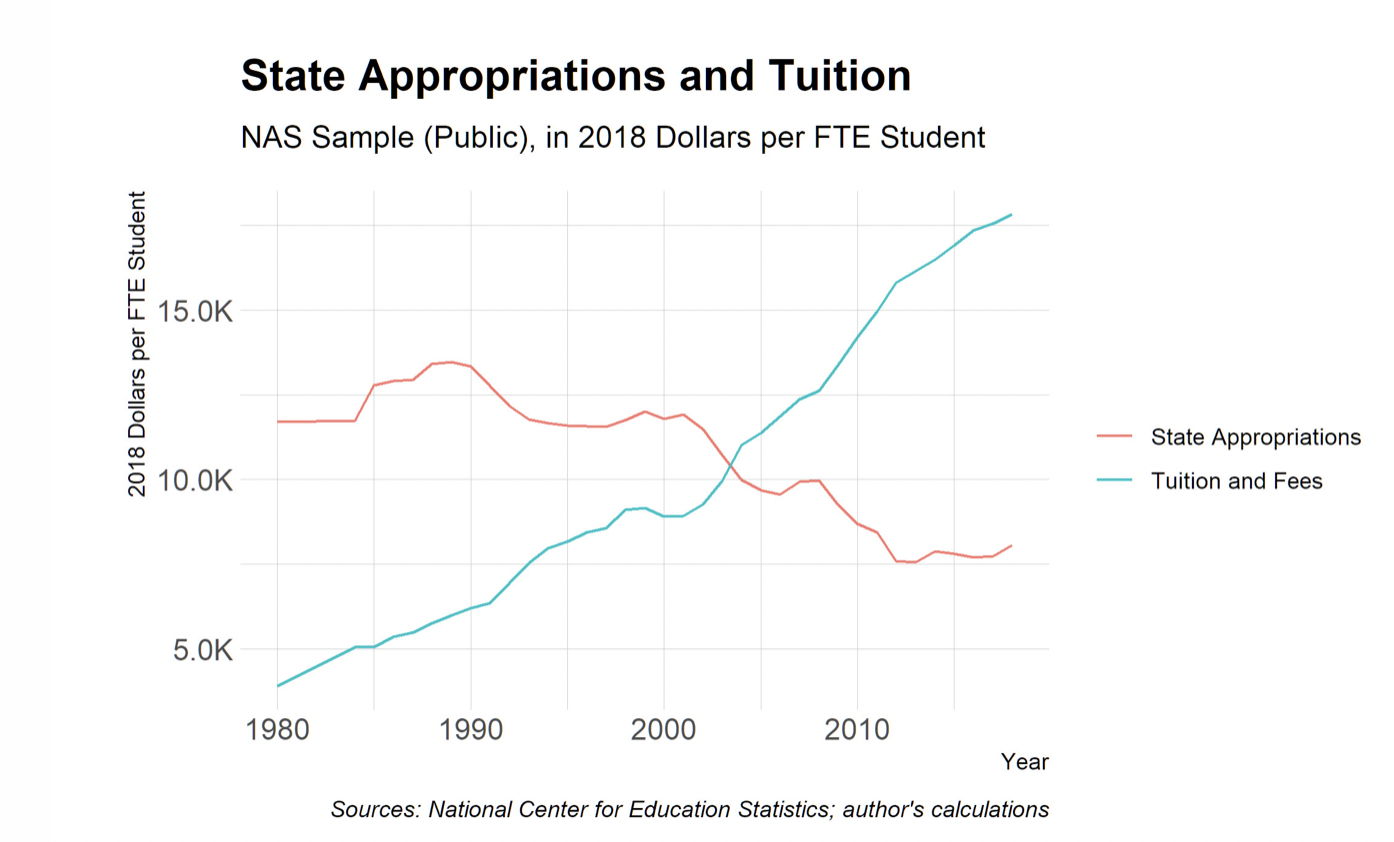The next general-election presidential poll you see will almost certainly be inaccurate.
Not because today’s projected percentages for President Joe Biden and former president Donald Trump won’t match what goes down in November; that’s a near-certainty. But rather, because the majority of polls right now list just those two candidates, in a voter-disillusioned year where most states’ ballots will feature at least five, maybe six.
And we’re not just talking about repeat randos like Rocky De La Fuente, either—independent Robert F. Kennedy Jr., with by far the highest favorability ratings in the race, has consistently polled higher than any nontraditional presidential candidate since Ross Perot in 1992. The centrist 501(c)(4) nonprofit No Labels, which is busy racking up ballot access in preparation for a post-Super Tuesday decision about whether to enter the fray, has been eyeing such nationally known figures as Sen. Joe Manchin (D–W.Va.) and former New Jersey Gov. Chris Christie.
Jill Stein, with more name recognition than any Green candidate since Ralph Nader, is again seeking the nomination of a party confident about improving on its 30 ballot lines from 2020. And the Libertarian Party (L.P.) may have lesser-known presidential candidates running thus far but is riding a three-election streak of third-place finishes, enjoys a large lead in third party registration, and expects to be on the ballot in 48 states. “I think that 47 would be a failure,” said Libertarian National Chair Angela McArdle.
When it comes to ballot access, an election-year February is a lot like spring training in Major League Baseball—every team predicts a pennant, players are in the best shape of their lives, etc. And the timeline for frequently onerous and always arbitrary state-by-state criteria is confusing enough to render much of the discussion about potential third party effects speculative, even conspiratorial.
What we do know is this: As of January 26, according to the indispensable Ballot Access News, the L.P. was on the ballot in 35 states, the Green Party 19, No Labels 12 (that number is now 14), the Constitution Party 12, and RFK Jr. just one. For the three holdover parties, those numbers represent slight declines from where they were four years ago.
This does not remotely mean that Kennedy will lag behind the Constitution Party, whose 2020 nominee, Don Blankenship, ended up on 18 ballots and received just 0.04 percent of the vote. It instead means that pre-existing political parties are pre-qualified for certain states based on past performance and that the deadlines for every state except Utah (which will have at least a half-dozen names on the ballot, including Kennedy’s) are in the future, beginning with North Carolina on May 18.
“We won’t really know anything in February much,” Ballot Access News Editor Richard Winger says. “You’ll have to wait ’til March.”
RFK Jr. is sitting on dollar amounts that all the other long-toiling third parties can only dream about. Federal Election Commission reports released this week showed the Kennedy campaign closing 2023 with $5.4 million cash in hand, while his biggest supporting super PAC, American Values, ended the year with $14.8 million in the bank. Such money can go a long way in paying for petitioners in the three dozen or so states where independent candidates need to present 10,000 or fewer valid signatures to get on the ballot.
The Kennedy campaign—whose ballot access page is the niftiest in the biz—effectively reduced its signature requirements by a whopping quarter-million voters in mid-January, by announcing the formation of the We the People Party in five states (California, Delaware, Hawaii, Mississippi, and North Carolina), as well as the Texas Independent Party. In some states, like California, independent candidates have a much larger signature-gathering requirement than political parties (219,403 to an estimated 75,000, according to Ballot Access News); in others, such as Idaho, the ratio is reversed: just 1,000 for independents, 17,000 for parties.
“It’s a heavy lift,” Kennedy Press Secretary Stefanie Spear says. “Every state has their own rules, and some are easier than others….The Kennedy campaign is up to the task.” Spear, who is confident that RFK Jr. will be on the ballot “in all 50 states and the District of Columbia,” blamed the two-party system for making competitors spend a disproportionate amount of their time jumping through those procedural hoops. “Ballot access is the name of the game right now,” she says.
Richard Winger, for one, thinks that 50-state access for Kennedy is achievable, given the way the campaign has approached the problem to date, including having volunteers petition outside polling places during the New Hampshire primaries and exceeding the needed 3,000 signatures. “I think he can probably do it,” Winger says. “I was impressed that he got on in New Hampshire in one day.”
The two biggest ballot roadblocks for non-Democratic/Republican presidential candidates are in two of the country’s three largest progressive-run states: New York and Illinois. “There are the two problem-child states right now,” the L.P.’s McArdle says.
New York in 2019 moved up its petitioning deadline from August to May, then in 2020 jacked up the threshold for third parties to maintain their ballot status from 50,000 votes in the previous gubernatorial or presidential election to 130,000, or 2 percent of the vote. The upshot? “We only have six weeks to gather 45,000 verified signatures,” says Green Party Ballot Access Committee Co-Chair Tony Ndege. “So that means we’re really going to have to shoot for over 60,000, really close to the 70,000. And that’s a really tall order. Very few parties, and almost no one without millions of dollars, have been able to achieve that.”
Ndege, like many people who work in these trenches, expresses something close to wonder when talking about the volume of challenges. “It’s just insane,” he said. “You can spend four years studying it, nothing but that, and it’s still very difficult, and it always changes too, because that’s how politics works.” Yet he’s bullish for the Greens this year. “We’re definitely far ahead of where we were in 2020,” he says, predicting that the party will “absolutely” clear that election’s 30 ballot-qualified states, and is pushing toward the goal of matching 2016’s 45.
The biggest wild card in the third party/independent space right now is No Labels, since there is still no indication whether, let alone how, the problem-solving centrists will compete against Trump and Biden. Amid a flurry of lawsuits and other legal maneuvers, the organization is giving itself until March to make a decision, and then (if the answer is “yes”) rush to select a ticket.
The comparative lateness of those decisions will keep the organization from obtaining clean ballot access everywhere. But still, says No Labels Chief Strategist Ryan Clancy, the group is on target to be on the ballot in 32 states.
“The reason for us to get 32,” Clancy says, “is there’s 18 states where they fall into one of two categories: Either one, you need to have a named candidate; or two, the threshold for a candidate is just much lower than a group like No Labels. So for example, a state might require No Labels to get 30,000 signatures, whereas a candidate would only have to get 3,000….So the way this would work is, in the end, No Labels will get 32. If we offer our ballot line to a ticket, the campaign itself would be responsible for getting those final 18. The good news, though, is we are absolutely ahead of schedule, relative to basically anybody else historically. Just for context, Ross Perot at this point in 1992 hadn’t even started getting signatures, and he ended up on all 50 states by September. So we’re exactly where we need to be.”
The Green Party, too, will be looking to fill ballot gaps with individual exertions from their eventual nominee.
Because of the group’s comparatively large war chest and potentially higher-profile candidates, No Labels has already attracted a nearly vicious level of interest from political professionals looking to remove obstacles from the reelection of Joe Biden.
“Through every channel we have, to their donors, their friends, the press, everyone — everyone — should send the message: If you have one fingernail clipping of a skeleton in your closet, we will find it,” a participant in a December anti–No Labels strategy session attended by the likes of Move On and The Lincoln Project said, according to Semafor. “If you think you were vetted when you ran for governor, you’re insane. That was nothing. We are going to come at you with every gun we can possibly find. We did not do that with Jill Stein or Gary Johnson, we should have, and we will not make that mistake again.”
Clancy, who used to be a speechwriter for Biden, said he has been surprised by the vitriol. “Look, I’m not naive. I didn’t expect either party would welcome us with open arms,” he says. “But the depth of the cynicism and hypocrisy has surprised me. Because if you listen to the groups that are coming after us,…they all wrap themselves in the banner of protecting democracy, saving our republic. So it’s all this high-minded B.S., and yet what they’re really doing is just the most bare-knuckled, ruthless things they can. Not just the lawfare kind of stuff…but threatening donors, candidates.”
While No Labels deliberates, the main public third-party focus is likely to remain on Kennedy, which, along with some shared policy interests, is one reason that some L.P. officials are nurturing relationships with the independent, including inviting him (along with Cornel West) to the California Libertarian Party convention in late February.
CNN’s Michael Smerconish set off a round of headlines and intra-Libertarian discussion last week by asking a mostly demurring RFK Jr. about his interest in seeking the L.P. nomination in late May. It would be “a big controversy,” McArdle says, “but it would definitely save us on ballot access.”
“We can go with Bobby Kennedy and get 50-state ballot access very easily, or we can stick very closely to our principles, because he does deviate from our platform in a handful of areas at least,” McArdle continues. “But I want us to be sober about the decision we make, conscious of it, and to not have regrets and sour grapes.”
Asked if a potential L.P. nomination factors into the Kennedy campaign’s ballot-access deliberations, Press Secretary Spear said, “No.”
The post Presidential Ballot Will Be Crowded With Third Party Candidates appeared first on Reason.com.
from Latest https://ift.tt/HeBL25M
via IFTTT


![Migrants pictured along the U.S.-Mexico border fence | For the past several months, congressional lawmakers have attempted to forge a bipartisan border security deal. By many indications, that deal is effectively dead—but that hasn’t stopped politicians from voicing some very unrealistic policy goals for the border. “Any border ‘shutdown’ authority that ALLOWS even one illegal crossing is a non-starter,” said House Speaker Mike Johnson (R–La.) on X, formerly known as Twitter, on Monday. “Thousands each day is outrageous. The number must be ZERO.” (A group of senators, meanwhile, reportedly struck a deal that would “automatically reject migrants and asylum seekers from crossing the border illegally once the daily average for border crossings surpasses 5,000 over a week or…8,500 on a single day,” per Axios.) President Joe Biden, in turn, vowed to “shut down the border when it becomes overwhelmed” if Congress granted him that authority. “I would use it the day I sign” a bipartisan bill “into law,” he said. (Former President Donald Trump, meanwhile, has claimed that Biden already has this authority and said that he should get on with using it.) As good as those promises might sound to border hawks, they’re not even remotely feasible. The U.S. government, for all the money and agents it’s thrown at the border over the past several decades, has never been able to “shut down the border” or achieve zero illegal crossings. Between the creation of the Department of Homeland Security in 2003 and January 2021, the U.S. has spent $333 billion to fund the agencies tasked with immigration enforcement, according to the American Immigration Council, a pro-immigration nonprofit. The budgets for those agencies have been rising for years. But more enforcement money doesn’t necessarily lead to lower illegal crossings. As budgets have gone up, apprehensions of people who crossed the border between authorized ports of entry have gone up, down, and remained static. In other words, they don’t cleanly align: Though Customs and Border Protection (CBP) reported 2.05 million apprehensions in FY 2023, it reported somewhat close to that number—over 1.5 million—in FY 2000. Annual apprehensions hovered below 500,000 from FY 2010 through FY 2018. Tough enforcement doesn’t bring illegal crossings down to zero, either. Even the pandemic-era Title 42 border order that effectively “closed the border to unauthorized border crossers” and asylum applicants couldn’t keep arrivals down, per a January report from the Migration Policy Institute (MPI). “Arrivals at the border increased dramatically through 2021 and 2022, despite the order remaining in place.” A policy brief last May from the National Foundation for American Policy, drawing on 100 years of Border Patrol apprehensions data, found that “none of the three U.S. periods with a significant decline in illegal immigration were due to enforcement policies.” Rather, they were due to increased legal pathways as well as changing demographics and labor demand. The U.S.-Mexico border stretches nearly 2,000 miles, much of it treacherous. No matter the funding and no matter the enforcement mandate, there’s no way that agents could stop every illegal crosser traversing the deserts, mountains, and waters that make up the border region. That’s proven impossible along much smaller and more surveilled borders, such as the boundaries of East Germany and North Korea. All this suggests that it’s time for some reflection from today’s zero-illegal-crossings proponents. “The contemporary challenge at the southwest border is one of border control rather [than] border security,” suggests the MPI. “The national objective must be not to solve the border control challenge by apprehending and removing 100 percent of unauthorized migrants, but rather to manage it in a manner consistent with the law and reasonably satisfactory to the American people.” Any workable border deal should focus on ways to make legal immigration more accessible—and more attractive—than illegal immigration. That’s the most proven way to reduce illegal crossings, and the most promising way to ensure that border agents are focusing on actual threats rather than the vulnerable migrants who are simply seeking a safe place to live and work.](https://d2eehagpk5cl65.cloudfront.net/img/c800x450-w800-q60/uploads/2024/02/vcgphotos076343-800x450.jpg)




